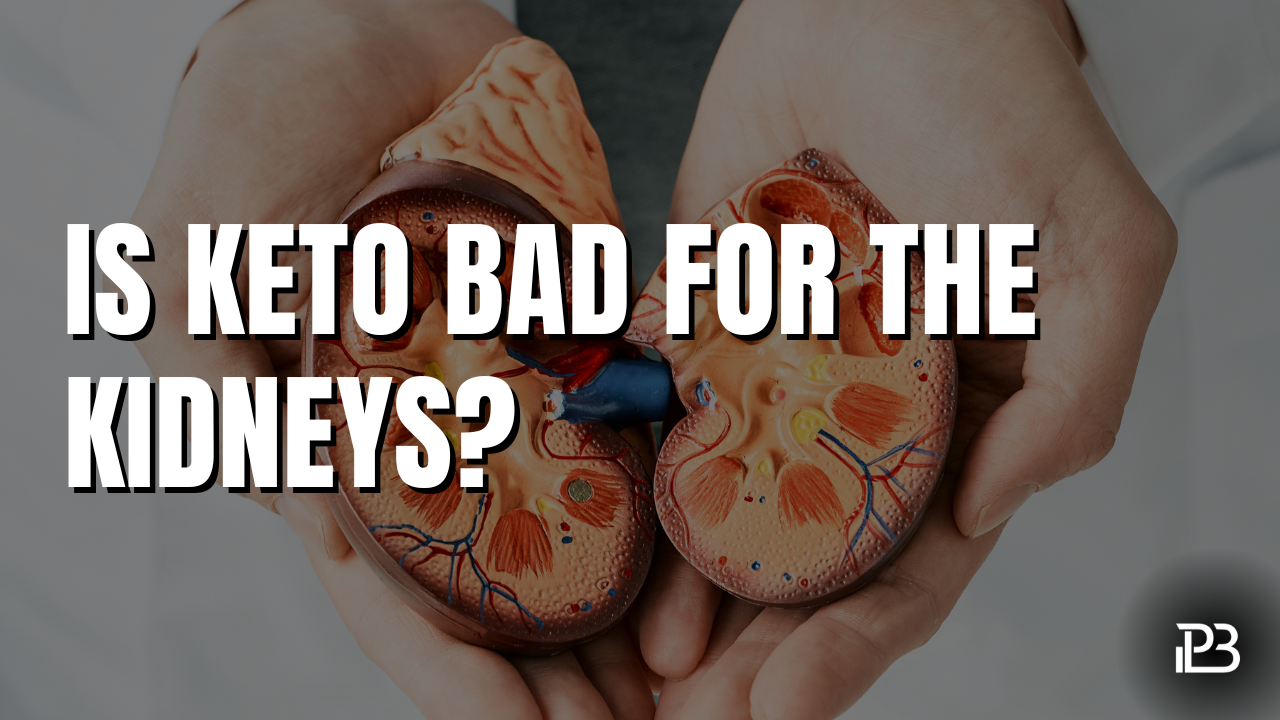The ketogenic diet, commonly known as the keto diet, has become increasingly popular for its potential benefits in weight loss and overall health improvement. However, with its rise in popularity, questions have emerged about its long-term effects on various organs, including the kidneys. This article will explore whether the keto diet is bad for the kidneys, the potential risks involved, and how to follow the diet safely if you have concerns about kidney health.
Table of Contents
Understanding the Keto Diet
The keto diet is a high-fat, low-carbohydrate eating plan designed to put your body into a state of ketosis, where it burns fat for energy instead of carbohydrates. To achieve and maintain ketosis, the diet typically limits carb intake to about 20-50 grams per day while increasing fat consumption.
How the Kidneys Function
The kidneys play a crucial role in filtering waste products, excess substances, and fluids from the blood, which are then excreted as urine. They also help regulate electrolyte balance, blood pressure, and red blood cell production. Maintaining healthy kidney function is essential for overall health.
Potential Risks of Keto for Kidney Health
1. Increased Risk of Kidney Stones
One of the primary concerns with the keto diet is the increased risk of kidney stones. The high intake of animal proteins can raise the levels of calcium and uric acid in the urine, leading to the formation of kidney stones. Additionally, the reduction in carbohydrate intake can decrease urine citrate levels, a substance that helps prevent stone formation.
2. Dehydration
The keto diet can lead to dehydration, especially in the initial stages. As the body depletes its glycogen stores, it also loses water and electrolytes. Dehydration can strain the kidneys and increase the risk of kidney stones and other kidney-related issues.
3. Electrolyte Imbalance
Maintaining proper electrolyte balance is crucial for kidney function. The keto diet can lead to an imbalance of electrolytes such as sodium, potassium, and magnesium, which are vital for kidney health. An imbalance can cause kidney stress and affect overall function.
4. Protein Intake Concerns
While the keto diet is not inherently high in protein, some individuals may consume excessive amounts of protein, believing it is necessary for the diet. High protein intake can put additional strain on the kidneys, especially in individuals with pre-existing kidney conditions.
Studies on Keto and Kidney Health
Research on the long-term effects of the keto diet on kidney health is limited, but some studies suggest potential risks and benefits:
- Potential Benefits: Some research indicates that the keto diet can improve certain health markers, such as blood sugar control and weight loss, which may indirectly benefit kidney health by reducing the risk of type 2 diabetes and obesity-related kidney damage.
- Potential Risks: Other studies highlight the potential risks, such as increased incidence of kidney stones and potential kidney function decline in individuals with pre-existing kidney conditions.
How to Follow Keto Safely for Kidney Health
If you are concerned about the potential impact of the keto diet on your kidneys, here are some tips to follow the diet safely:
1. Stay Hydrated
Drink plenty of water to stay hydrated and help flush out waste products from your kidneys. Proper hydration can also reduce the risk of kidney stones.
2. Monitor Electrolytes
Ensure you are consuming adequate electrolytes, including sodium, potassium, and magnesium. Consider electrolyte supplements if necessary, and include electrolyte-rich foods in your diet.
3. Moderate Protein Intake
Avoid excessive protein consumption by focusing on moderate protein intake. The keto diet emphasizes fats, so ensure you are getting most of your calories from healthy fats rather than proteins.
4. Regular Health Checkups
If you have pre-existing kidney conditions or concerns about kidney health, consult with a healthcare professional before starting the keto diet. Regular checkups can help monitor kidney function and detect any potential issues early.
5. Include Citrate-Rich Foods
Incorporate foods rich in citrate, such as lemons and limes, into your diet to help prevent kidney stone formation.
Conclusion
The keto diet can have potential risks for kidney health, including an increased risk of kidney stones, dehydration, electrolyte imbalance, and strain from excessive protein intake. However, with careful planning and monitoring, it is possible to follow the keto diet safely. Staying hydrated, moderating protein intake, and ensuring adequate electrolyte consumption are crucial steps to protect kidney health while on the keto diet. Always consult with a healthcare professional before making significant dietary changes, especially if you have pre-existing kidney conditions.
Discover the Custom Keto Diet – Updated For 2024 – AOV Monster!
Ready to transform your health and achieve your weight loss goals with a personalized keto plan? The Custom Keto Diet – Updated For 2024 – AOV Monster! offers tailored meal plans that fit your unique needs and preferences. Take the guesswork out of your keto journey and enjoy delicious, easy-to-follow recipes designed to keep you in ketosis. Click here to get started and take the first step towards a healthier, happier you!
Disclaimer: I am an affiliate of the Custom Keto Diet.
What Foods Are in a Keto Diet? Discover the Key to Transforming Your Health
What is the Basic Rule of The Keto Diet?
What Does The Keto Diet Mean?
What Food is Not Allowed in Keto Diet?
Can You Eat Rice on a Keto Diet?




